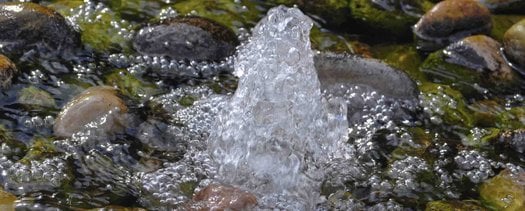
In childhood, we’re told to clean up the messes we make. But in Michigan law, polluters can leave contaminated groundwater and soils behind—and prevent the public from ever using that groundwater for drinking water or the sites for future development.
Michigan is dotted with more than 2,000 sites where toxic contamination in soils and groundwater legally remains at levels unsafe to contact or drink. Imagine if we cordoned off rivers and bays, left pollution in place, and banned swimming or fishing in those areas. For obvious reasons, we don’t. Groundwater, which supplies 45% of Michigan’s ...
In childhood, we’re told to clean up the messes we make. But in Michigan law, polluters can leave contaminated groundwater and soils behind—and prevent the public from ever using that groundwater for drinking water or the sites for future development.
Michigan is dotted with more than 2,000 sites where toxic contamination in soils and groundwater legally remains at levels unsafe to contact or drink. Imagine if we cordoned off rivers and bays, left pollution in place, and banned swimming or fishing in those areas. For obvious reasons, we don’t. Groundwater, which supplies 45% of Michigan’s population with drinking water, deserves the same kind of protection. You can learn more about threats to groundwater in the Great Lakes Basin and solutions to protect it on FLOW’s website.
One of the most notorious places where this failed policy has cost the public is in the Ann Arbor area, where a corporation dumped tons of carcinogenic 1,4 dioxane into the groundwater over a period of decades. Michigan law does not require the polluter to restore the groundwater to drinking water standards. Instead, private and municipal drinking water wells have been closed in a growing “prohibition zone,” as the contamination continues to spread towards the Huron River, the city’s main drinking water supply.
Michigan cannot afford this policy any longer. Please take a moment to contact your State Representative and Senator to urge them to support legislation (House Bill 4314 and Senate Bill 58) to require polluters to pay to clean up their contamination until it is safe for access and drinking water.
Contact your State Representative and Senator to urge them to support legislation (House Bill 4314 and Senate Bill 58) to require polluters to pay to clean up their contamination until it is safe for access and drinking water. Michigan cannot afford this policy any longer.
Simply click the red button below labeled, “Agreed, I want to sign now.” Enter your name and contact information in the form that appears, add any personal remarks of your own, and click “Sign.” You also can opt to receive periodic updates from FLOW on polluter pay and other issues facing our groundwater and Great Lakes.